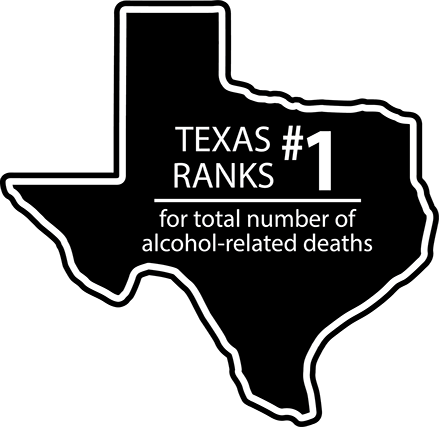
VOLUME 5, ISSUE 1
MENU

Transportation safety researchers like the ones working at the Texas A&M Transportation Institute's (TTI's) Center for Alcohol and Drug Education Studies (CADES) often dream of a silver bullet that could miraculously end the use of alcohol or drugs by drivers. They know that ending impaired driving altogether would save thousands of lives each year.
“There is no magic wand, but we have made substantial progress as it pertains to safety in Texas,” explains TTI Research Scientist Troy Walden, CADES director. The center is part of TTI’s Center for Transportation Safety. “We realize that anytime you’re dealing with human behavior — especially if that behavior involves the use of alcohol or drugs — decisions are not made with a sound mind. Drugs and alcohol alter good thinking, and that’s what we’re up against: individuals deciding it’s okay to drive impaired.”
CADES has developed an extensive portfolio of lifesaving research and educational programs. Even with these tools, based on some of the latest figures about drunk driving deaths in the Lone Star State, Walden admits, it’s sometimes easy to get frustrated.
Take for example the latest figures — released by the National Highway Traffic Safety Administration (NHTSA) — that show alcohol-related fatalities in Texas became a bigger percentage of the total number of all fatalities in 2018. Alcohol-related deaths represented 40 percent of the state’s 3,642 total traffic deaths that year. Among all states, Texas ranks first in the total number of alcohol-related deaths, with 1,439. It’s the second-highest percentage of alcohol-related deaths in the nation, only behind Montana, in which 43 percent of its 2018 traffic deaths related to alcohol. The national average is 29 percent.
Also according to NHTSA, Texas ranks second in the percentage of deaths in which drivers were highly intoxicated. Figures from 2018 show that 26 percent of the alcohol-related fatalities in Texas occurred when a driver(s) had a blood alcohol concentration twice or more the legal limit.
“We continue to fight, despite statistics like these,” Walden says. “And it’s important, innovative work.”
Next fiscal year, TTI Assistant Transportation Researcher Cinthya Roberto will be working to lessen Texas’ high recidivism rates. Currently, 36 percent of Texas’ driving while intoxicated (DWI) offenders are convicted for a second time. The national average is 31 percent.
“I will be developing a training curriculum for district attorneys’ offices, probation departments and courts,” Roberto explains. “The training is designed to highlight the various treatment intervention options available in Texas, and pinpointing those specific programs that are most effective. The goal of this Texas Department of Transportation project is to help the criminal justice system reduce the recidivism rate of DWI offenders.”
Roberto’s project, which will assess the most effective intervention models, is a first for the state.
Also related to evaluation, CADES researchers are preparing for NHTSA’s required State’s Impaired Driving Program Assessment, which comes due every five years.
“This assessment is a huge undertaking,” says Paige Ericson-Graber, TTI assistant research scientist, who manages the Texas Impaired Driving Task Force. “The assessment is a full-scale, in-depth evaluation of every aspect of impaired driving in Texas to include the criminal justice system, prevention and communication programs, screening and treatment, and much more.”
Ericson-Graber says the assessment’s results and recommendations are integrated into the Texas Impaired Driving Plan, “which is essentially the state’s roadmap for reducing and, ultimately, eliminating impaired driving crashes and injuries in Texas.”
With the goal of improving the impaired driving safety program, the assessment is due in August.
CADES Research Team Faces Challenges with Innovation, Dedication

“The assessment is a full-scale, in-depth evaluation of every aspect of impaired driving in Texas to include the criminal justice system, prevention and communication programs, screening and treatment, and much more,” says Paige Ericson-Graber, TTI assistant research scientist.
NHTSA’s required State’s Impaired Driving Program Assessment
CADES has developed an extensive portfolio of lifesaving research and educational programs.
“There is no magic wand, but we have made substantial progress as it pertains to safety in Texas,” explains TTI Research Scientist Troy Walden, CADES director.
